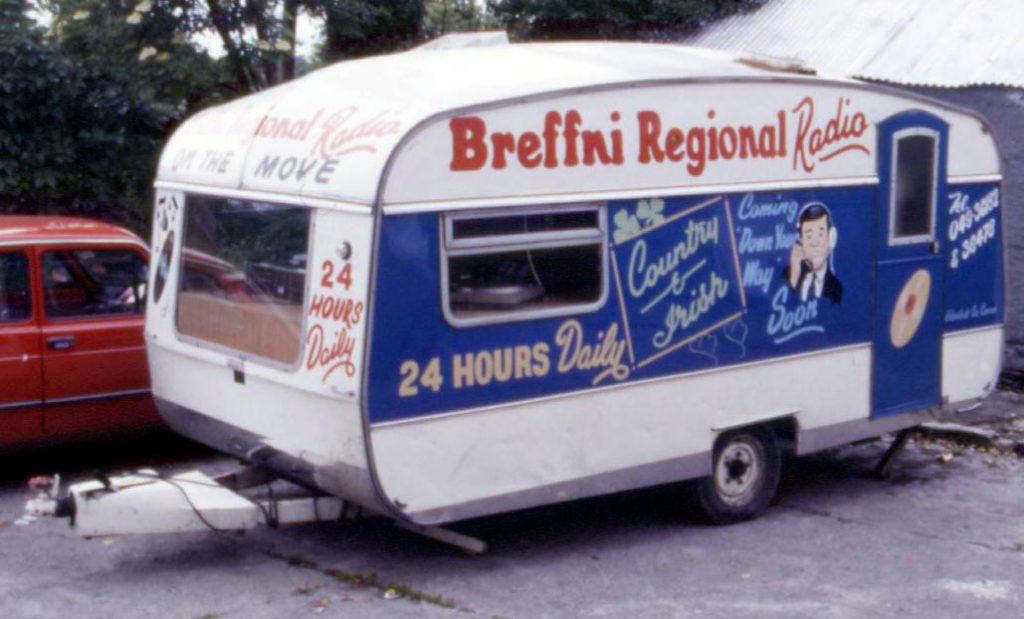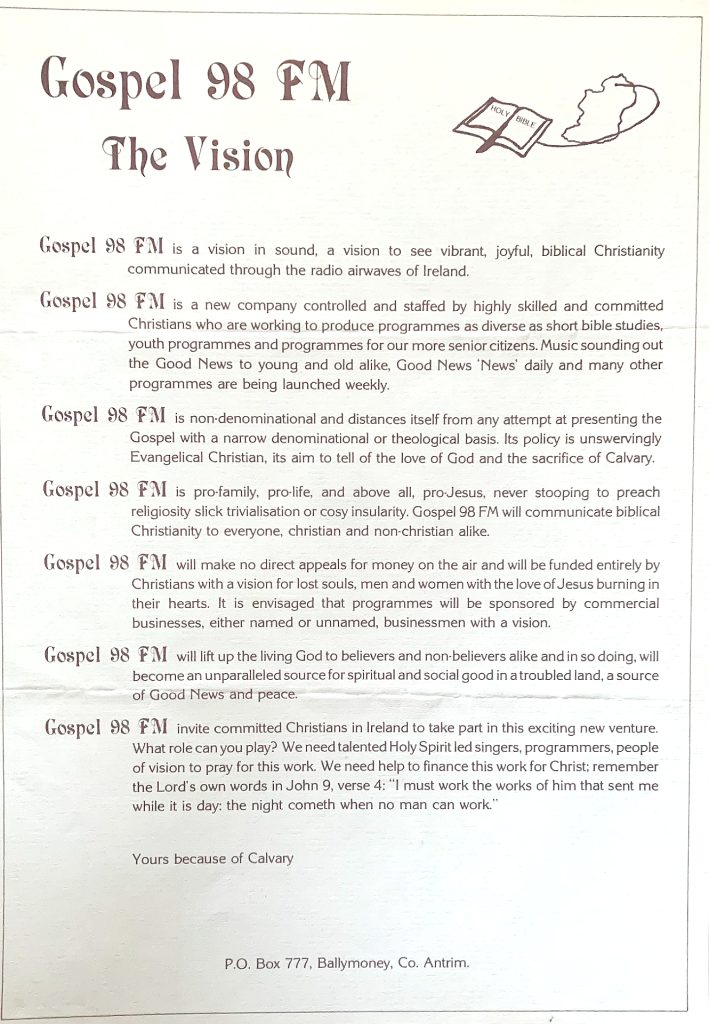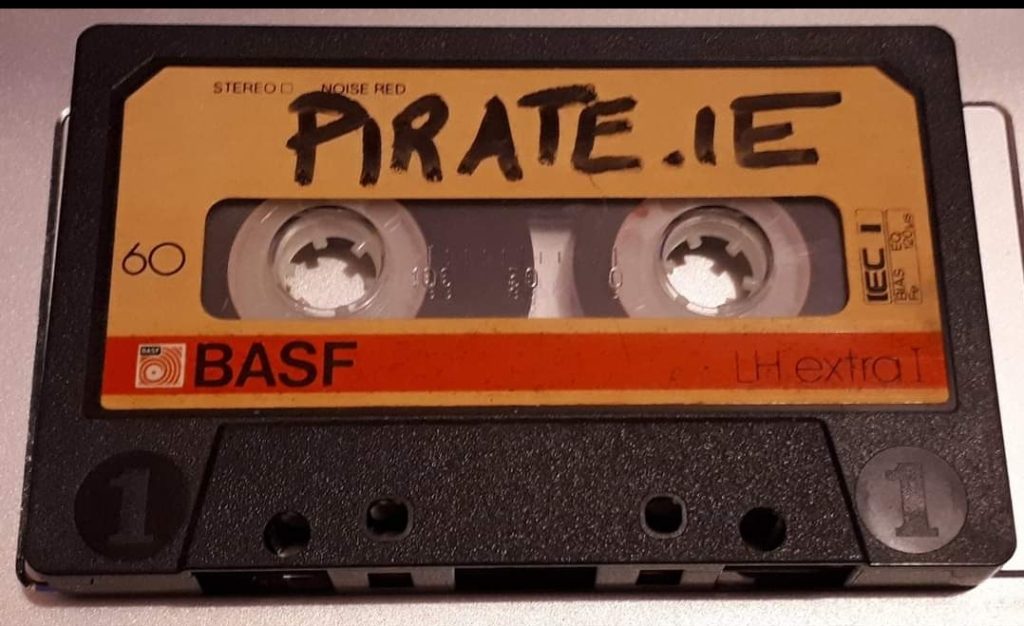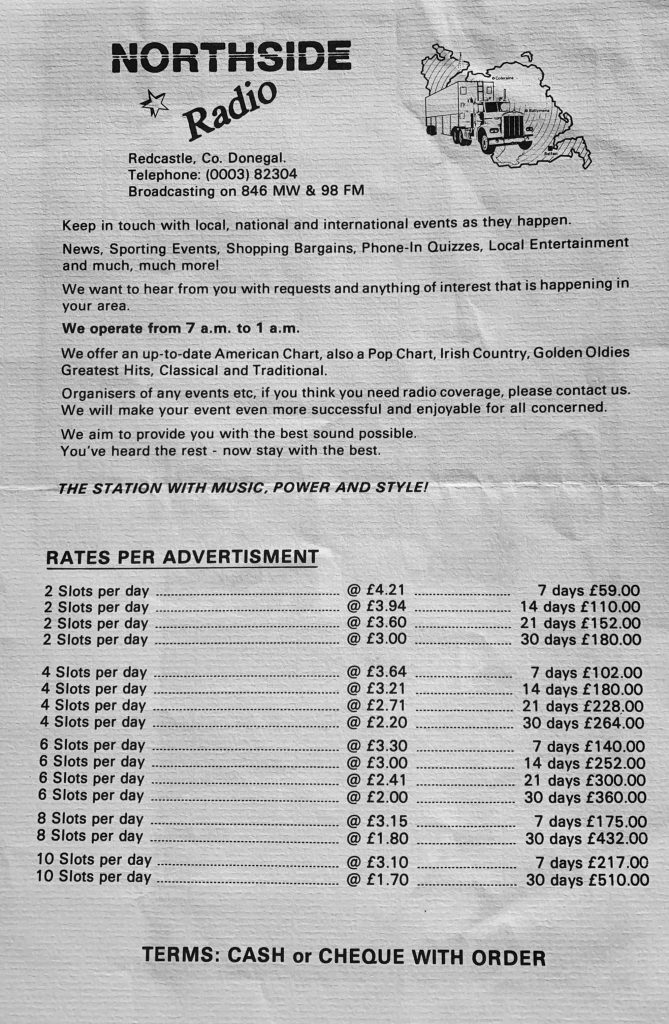Podcast: Play in new window | Download

Breffni Community Radio, later Breffni Regional Radio, broadcast from Kilnaleck in Co. Cavan from the end of 1984 until the end of 1988, one of several successful border stations playing mostly country and Irish music. After applying unsuccessfully for a licence, Breffni returned to the airwaves for a few weeks in late 1989.
As reported in the newsletter Newsline Ireland produced by Rodney Neill, the station was first heard on Wednesday 8th November on 100.0 FM, later moving to 98.9 MHz. The AM transmitter was brought back into service on Sunday 12th November on the old frequency of 657 kHz. Breffni continued to broadcast 24 hours a day until Friday 24th November, when officials from the Department of Communications were rumoured to be in the vicinity of the FM transmitter. This was switched off and Breffni continued on AM only. Newsline Ireland continued:
However, on Friday 1st December, Breffni Radio were raided. Sean Brady was hosting his morning show, as he had since the station returned to the air. An engineer had travelled from Donegal to do some work on the AM transmitter as it had been quite distorted since it had been switched off the previous week as a precaution. The AM rig went silent at around 12.15pm to allow the work to be carried out and it was 15 minutes later when the officials arrived.
The Breffni staff present were cautioned and told that they were liable to proseuction under the new broadcasting legislation. The AM transmitter and studio equipment were confiscated and that was the end of Breffni Radio’s brief return in 1989.
This recording of Breffni Radio was made from 99 FM on Monday 20th November 1989 from 1027-1201 and features Seán Brady with plenty of requests, a notice board and death notices, which would become a staple of licensed independent radio in Ireland. The recording was made by Rodney Neill. Thanks to Ian Biggar for the donation and background information.




